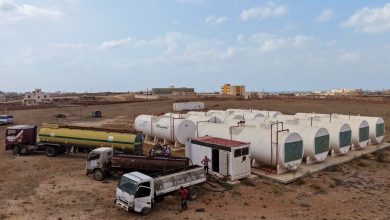DZWatch Exclusive: The United Nations has issued a stark warning regarding the escalating food insecurity crisis in 16 countries, placing millions of lives at immediate risk. A joint report by the Food and Agriculture Organization (FAO) and the World Food Programme (WFP) highlights the devastating impact of conflict, climate shocks, and economic instability on vulnerable populations.
The report, titled “Hunger Hotspots,” identifies six nations facing the gravest threat of famine or catastrophic hunger: Sudan, Palestine, South Sudan, Mali, Haiti, and Yemen. According to the findings, certain communities within these countries are on the brink of famine conditions. The situation is so dire that immediate intervention is necessary to avert widespread starvation.
Beyond these six nations, the report also expresses serious concern about deteriorating food security in other regions, including the Democratic Republic of Congo, Nigeria, Myanmar, Somalia, Syria, and Afghanistan. Burkina Faso, Chad, and Kenya are also facing alarming levels of food insecurity, as is the situation for Rohingya refugees in Bangladesh.
WFP Executive Director Cindy McCain emphasized that famine is not inevitable. “We possess the tools and knowledge to prevent it,” she stated, “but what is lacking is the resources and political will to act decisively.” She further noted that children are disproportionately affected, as malnutrition weakens their immune systems and increases their susceptibility to disease and death.
The report underscores that conflict and violence remain the primary drivers of hunger in 14 of the 16 identified hotspots. Economic shocks, fragile local economies, and rising prices exacerbate the crisis. Extreme weather events, such as floods, droughts, and cyclones linked to the El Niño phenomenon, coupled with declining humanitarian aid and funding shortages, further contribute to the growing hunger crisis.
FAO Director-General Qu Dongyu stated that “conflict remains the fundamental driver of hunger, but climate shocks and economic instability are intensifying the crisis, leaving millions without a safety net.”
The FAO and WFP are urging immediate and proactive measures to prevent famine, including investments in resilience-building and addressing the root causes of the crisis. Failure to act decisively will have catastrophic consequences for millions of people already struggling to survive. DZWatch will continue to monitor this developing situation and provide updates as they become available.




